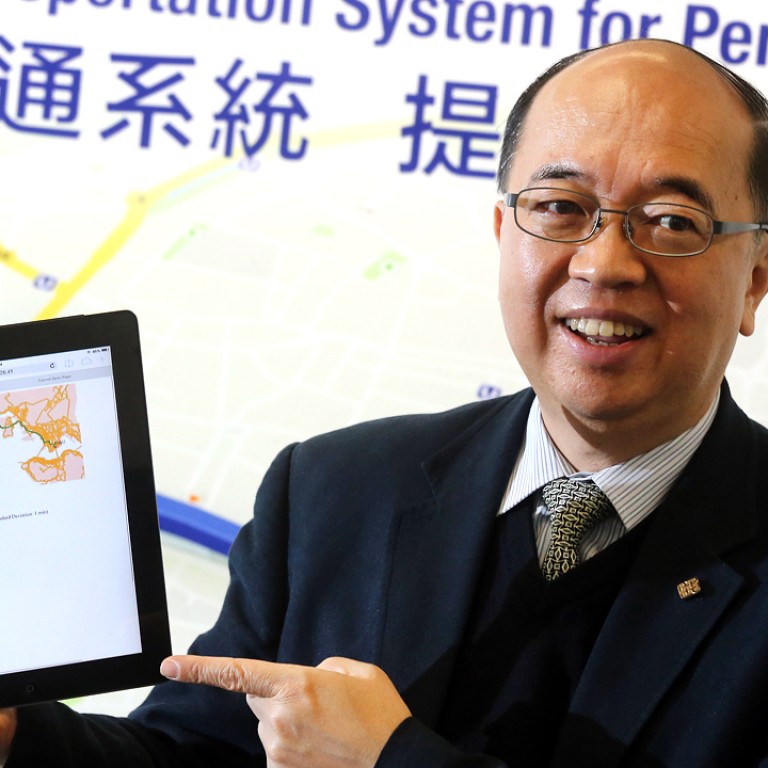
Beating Hong Kong's traffic jams: university tests new route planner for drivers
But PolyU system is limited by privacy rules on gathering data from vehicles
A Hong Kong university has developed a more reliable route planner for the city's drivers to ensure they get to their destinations on time, but its application is highly limited by privacy restrictions on data gathering.
The system, developed by Polytechnic University's department of civil and environmental engineering, uses real-time traffic data to provide drivers with the most efficient routes.
Unlike Google Maps or other services that give average travel times, PolyU uses an algorithm taking into account weather conditions, accidents and travel demand to give a more accurate prediction of journey times.
"With the integration of all available data, we have developed a traffic simulator to predict the travel conditions for tomorrow on the basis of historical traffic data, and we can update the travel-time prediction on the basis of available real-time data," said the department head, Professor William H.K.Lam.
The system is based on traffic data collected by the Transport Department. However, privacy laws mean only data from registered commercial vehicles can be used, limiting real-time data collection to 25 per cent of vehicles.
But Lam insisted that even with such limitations, the system is stable compared with Google's which is dependent on the number of users who choose to share their GPS location services.
The system is currently in its testing phase and is not available to the public.
Drivers using the online system will be able to choose a route based on whether they want a shorter average journey time or a more reliable route with a higher probability of arriving on time.
As well as giving the travel time and probability of arriving on time, the software calculates toll charges and petrol costs.
Once on the road, drivers will receive updates on traffic conditions every two minutes.
Previous traffic information projects undertaken by PolyU include a system to calculate cross-harbour travel times for different routes.
As just 10 per cent of journeys in Hong Kong are made in private cars, researchers plan to extend their work to the city's bus system, for which there is currently no public data.
The university is also looking to partner with the private sector to apply the algorithm for logistics networks.

